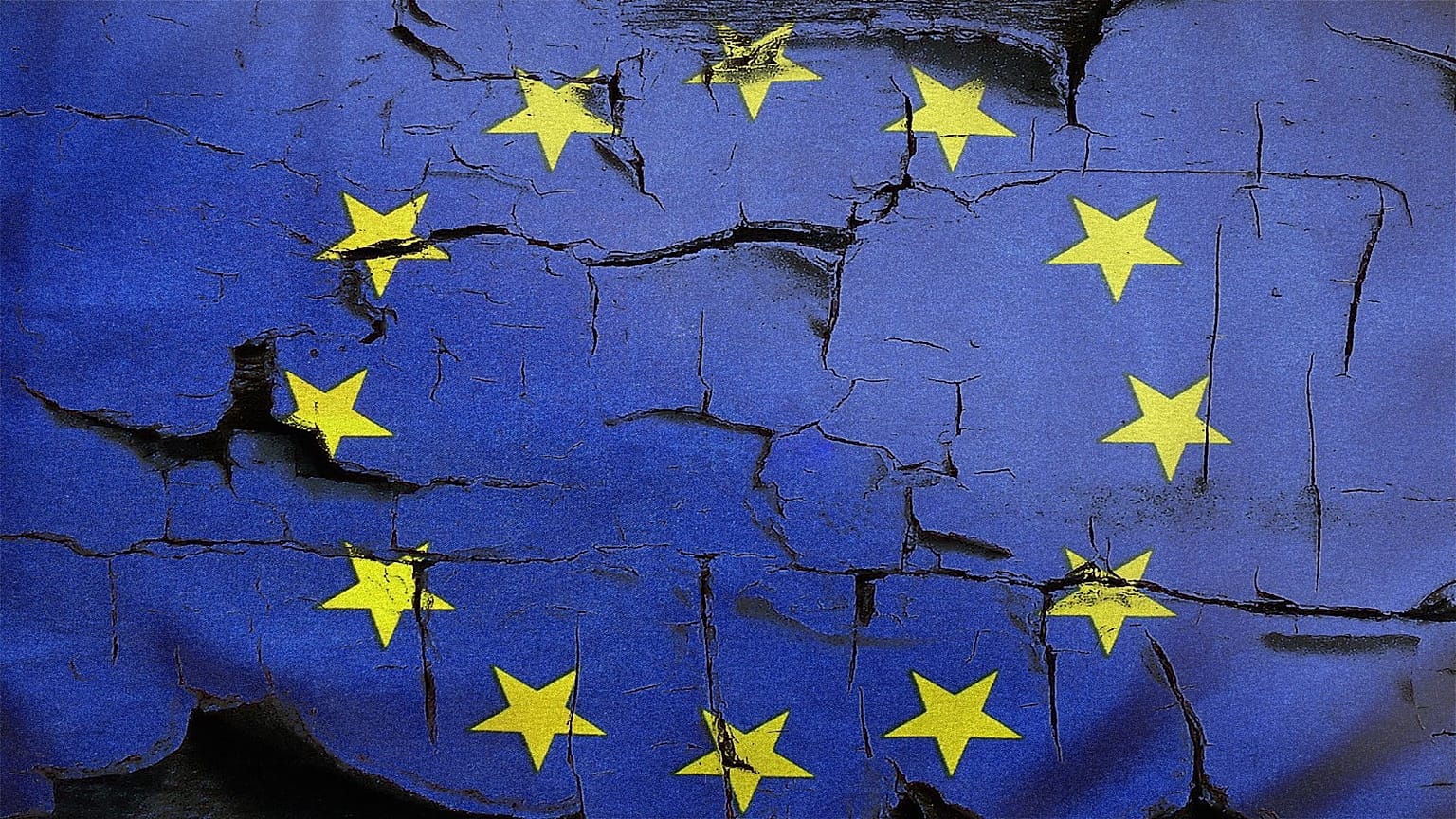The EU has not included such a procedure in its treaties — adding it now would take years and most likely fail.
Over the past few years, Brussels has launched punitive proceedings against Poland and Hungary for rule of law breaches and it is now getting ready to use a new mechanism to withhold funds. But if these fail to rein them in, could the European Union ever kick a member state out?
 ADVERTISEMENT
ADVERTISEMENT
 ADVERTISEMENT
ADVERTISEMENT
The short answer is: no. The long answer is: it would take years of haggling and then most probably fail.
The reason is quite simple: The EU simply never planned for that possibility.
"Legally speaking, we don't have the apparatus to expel a member state — unlike the Council of Europe, for instance, where Russia was expelled a few weeks ago," Adam Lazowski, a professor of EU law at the University of Westminster, explained to Euronews.
From six to 27
The EU, as most officials love to stress, was born as a peace project as the Old Continent tried to rise from the ashes left behind by World War II.
The idea then was that by creating deeper economic ties between countries, they would think twice about future conflicts. And thus the European Coal and Steel Community (ECC) was born in 1952 with Germany — then West Germany —, France, Italy, the Netherlands, Belgium and Luxembourg as its founding members.
Rapid economic expansion in the 1960s, the fall of autocratic regimes in Spain, Greece and Portugal in the 1970s, strong societal changes triggered by the 1968 protests, economic downturns such as the 1973 oil crisis and the collapse of communism have all transformed the Community of six into a Union of 27 no longer driven solely by economic concerns, but democratic values as well.
It’s now been nine years since the most recent enlargement — the last country to join was Croatia in 2013 — and in fact, since then, the EU got smaller.
The UK triggered Article 50 of the Treaty of the EU in March 2017, nine months after its voters backed withdrawing from the bloc and starting a tumultuous two-year negotiation countdown that has had a chilling effect on EU-UK relations with many important issues still left unresolved.
But Brexit was not the only large political shift experienced bloc-wide during the 2010s. The decade was also characterised by the rise and strengthening of right-wing populist parties that spewed anti-bloc rhetoric.
Unanimity rule curtails Brussels
These include Fidesz in Hungary and the Law and Justice (PiS) party in Poland, which have been repeatedly dragged to the courts by Brussels over reforms they have undertaken curtailing the independence of the judiciary as well as the media and civil society and the rights of migrants, women, and minorities.
Europe’s top court invariably sided with the EU Commission, whose role is to be the guardian of the treaties and the union's laws, but on the ground, nothing much has changed.
Exasperated, MEPs launched Article 7 proceedings against Poland in 2017 and Hungary in 2018. This procedure — often referred to as the "nuclear option" — opens the door to punitive measures including a suspension of voting rights at the Council level.
But it has been stalled ever since. The problem is that moving forward requires a unanimous vote from leaders and as Viktor Orban confirmed on Wednesday following his reelection for a fourth consecutive term, "with the Polish, we are in a mutual defensive alliance”.
“We will not allow each other to be excluded from European decision-making,” he added.
Still exasperated, MEPs pushed for the creation of another punitive instrument, which eventually led to the creation of the rule of law conditionality mechanism, which was finally endorsed in February 2022 by Europe’s top court, allowing for EU funds to be withheld from member states if they backslide on the rule of law.
European Commission head Ursula von der Leyen announced on Tuesday that she plans for the mechanism to be triggered against Hungary shortly.
It is however unclear what criteria will be used and how much funds could be withheld as the mechanism was watered down from the initial proposal as Hungary and Poland threatened to veto the EU budget over it.
'The EU will have to say no'
Additionally, authorities in both countries have made thinly-veiled references to a possible ‘Polexit’ or ‘Huxit’ in a bid to up the pressure on the bloc, still reeling from the impact the divorce with the UK has had and continues to have.
However, such eventualities are unlikely.
“The whole operation of the Orban regime — which is built on the strategic corruption and abuse of EU funds — this political system is not operational outside the EU,” Daniel Hegedus, a visiting fellow at the German Marshall Fund of the United States, a think tank, flagged to Euronews.
Zsolt Enyedi, a professor and senior researcher at the Central European University’s Democracy Institute, concurred: “I don’t think Orban will ever voluntarily leave the EU primarily because of financial reasons.”
“But I think he can create a situation when the EU will have no choice but to expel Hungary,” he added. “Many of the rating agencies that monitor quality of democracy consider Hungary to be a non-democracy, and they do this because of various facts on the ground.”
“If Orban continues down this road, there will be a point where it will be blatantly obvious that we have a Putin-style — although not violent but in terms of ideology and mentality — regime within the EU and then the EU will have to say no to this,” he argued.
'A lot of naiveté'
Yet, there is no such existing clause or article in the treaties because "the EU is based on the rule of law and the presumption that all member states comply with its key components," Lazowski said.
"It was a lot of naivete to believe that pre-accession policy can do miracles and then reforms are set in stone. But as we've witnessed in Hungary, and especially in Poland, things can unravel very, very quickly," he added.
Concretely, if Brussels wanted to go down that path, it would most probably need to demand a formal treaty revision to add such a procedure.
Article 50 for instance, was worked into the Treaty of Lisbon that was adopted in 2007 and came into force in December 2009. Work for the treaty revision started as early as 2001.
And then, once revised, the treaty would have to be backed unanimously by member states, which governments in the EU’s crosshairs would no doubt reject anyway.
“It was really naive not to include such a procedure as we have in Council of Europe — Article 8 of the Statute of Council of Europe, which allowed [it] to kick Russia out in the matter of a month or less than a month from the invasion,” Lazowski stated.
What voters want
Ultimately, for Brussels the best-case scenario would be for voters to kick these governments to the curb by electing more pro-EU, liberal politicians, thus precluding the need to kick member states out.
Von der Leyen’s announcement about triggering the rule of law mechanism against Hungary came two days after elections were held in the eastern European country, suggesting Brussels might have hoped for a different outcome that would have nullified the need to launch punitive measures.
Yet, while Hungary and Poland have proven that dismantling rule of law safeguards can be done with lightning speed, the reverse is not necessarily true.
In the case of Hungary, where opposition parties banded together to present an anti-Orban front, breaking down Fidesz’s legacy will likely prove difficult.
“During the last few years, the rules and regulations were changed in such a way that virtually all decision-makers — those who rule over the judiciary, prosecution, the election commission, media, sport, entertainment, universities, and any sector of life you can think of — have offices that last eight, 10, 12 years or sometimes for life,” Enyedi flagged.
“So the new government will not be able to remove these people. These people will keep deciding what matters,” and continue to “do what Orban wants,” he said.
_Correction: The article was amended as it originally stated that Article 7 proceedings against Poland and Hungary had been started in 2018. They started against Poland in 2017. _














